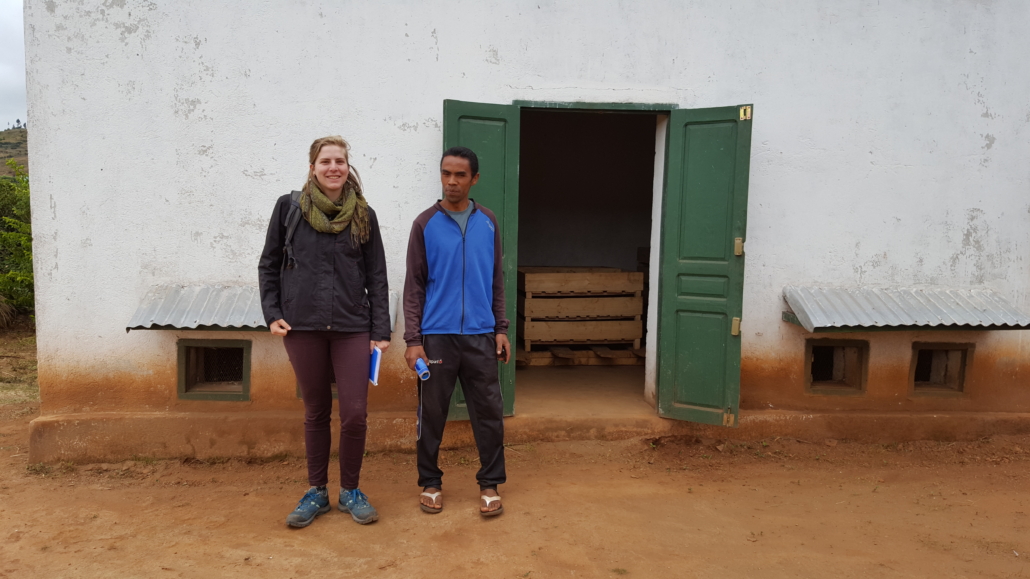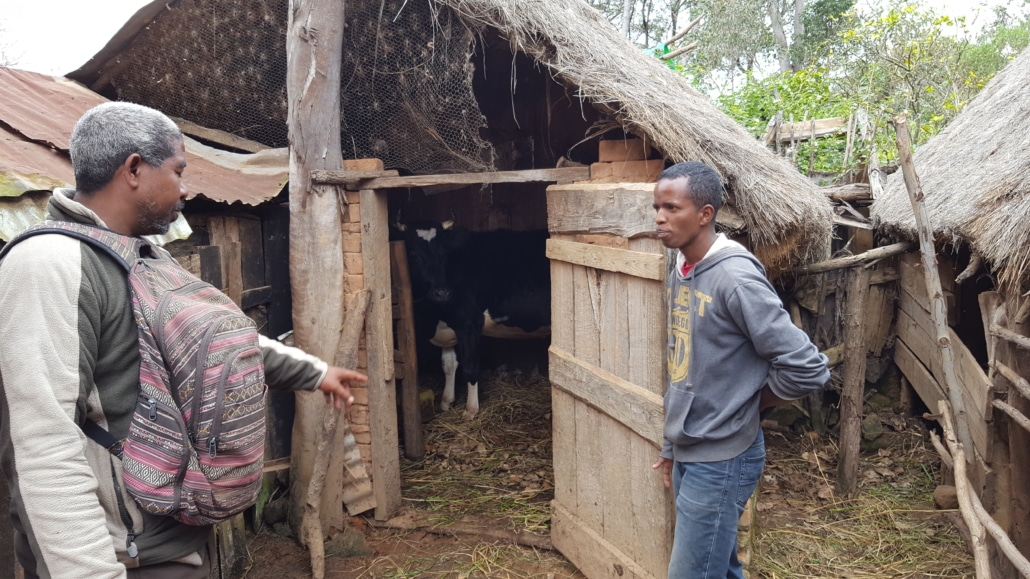SCALING UP AND DISSEMINATION: HOW PRODUCER ORGANISATIONS ACT TO INCREASE THEIR IMPACT?
LEAH WARTHER TALKS ABOUT IT AFTER AN INTERNSHIP AT FERT
AN INTERNSHIP IN MADAGASCAR
As part of her training at the Institute of Hot Regions (IRC) in Montpellier SupAgro, Leah completed a 4.5-months internship in Madagascar and 1.5 month in France.
Fert is a partner of the Institute of Hot Regions and is involved in the MOQUAS Master’s degree (Markets, organizations, qualities and services in support of southern agriculture), an option chosen by Leah. This is the last year of a 3-year programme: SAADS (Sustainable Agriculture and Agri-Food Systems in the South).
This professional simulation internship, proposed by Fert, aimed to characterize and analyze processes of change of scale for agricultural services offered by the producer organizations of the Fifata group in Madagascar.
AN INTERNSHIP ON SCALE CHANGE, WHAT IS IT?
My internship consisted in understanding, describing and analysing the scaling up processes of four services set up within the Fifata group in several regions of Madagascar.
Scaling up can take many different forms; describing it means understanding how we have moved from an initial situation of a functioning service to a situation where the service reaches more and/or better producers, and/or in more regions. This takes time, because for each service, the process is different, involving different actors and contexts.
To do this, I conducted qualitative interviews with about sixty people (Fert employees, leaders and managers of the Fifata group, farmers): dialogue with people involved in these services helps to understand the history, the organisation of the FO (farmer organisation) and the service and finally the process of scale change. I have discovered that the change of scale is implied in the action and is sometimes implicit. There is no strategy for “scaling up” and therefore no standard process. On the other hand, it is possible to find conditions and characteristics favourable to the change of scale. That’s what I’ve been trying to do.
HOW IS THIS INTERNSHIP USEFUL FOR FO?
Being interested in the change of scale is very interesting because it is a transversal subject and at the heart of the concerns of different actors in the field. At their level, FOs are concerned to meet the needs of their members by offering a quality service and proximity… but at the same time, they seek to have a greater impact by offering these services to a greater number of producers. My work allows me to understand and share the strategies adopted by several FOs to reconcile quality and impact, and thus help FOs to imagine how they can “change scale”.
UNDER WHAT CONDITIONS CAN AN OPERATION FACILITATE THE DISSEMINATION OF ITS SERVICES?
Through the study of four services, it is possible to identify ‘favourable conditions’ to facilitate the dissemination of services, whether at local, regional or national level:
- To have a ‘prior’ service mastered within the FO and whose producers, elected officials and technicians are convinced of the interest.
- Valuing the experience of this FO, in particular through the use of the demonstration effect “over the hedge”: through the demonstration plots, with an innovative farmer who will attract the attention of his neighbours, through travel and exchange between peers to raise awareness, through the various works of capitalization, extension.
- Respect the time required for dissemination and do not force it: this requires, in particular, a relationship of trust between the actors involved in the service (farmers and technicians) but also training and good communication between people. This time is necessary to ensure that the need for services has been identified.
AND TO CONCLUDE
Have a ‘key recipe’ for changing scale: there is a strong temptation to want to generalise these processes and make recommendations to those who support producer organisations. But Leah is well aware that this is impossible: she reminds us that her study is part of a particular context, where Fert has been present in Madagascar for more than 30 years, and where the Fifata group is a network of structured FOs. Elsewhere, the processes of scale change are probably not the same. Thus, even if the change of scale is at the heart of each FO, there is no preconceived model.




